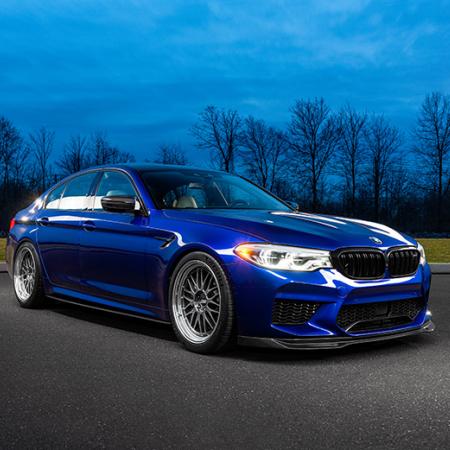December was good for BMW of North America, as sales of BMW-brand vehicles increased 4.3% from a year ago, with 34,253 new BMWs leaving dealer showrooms. The final quarter of 2017 saw BMW sales rise to take a little of the hard edge off a disappointing year. For all of 2017, BMW sold 305,685 vehicles, down 2.4% from the 313,174 sold in 2016.
Leading the charge in December were the G30 BMW 5 Series, the BMW X1, and the ever-reliable BMW X5. The 4,743 BMW 5 Series sales represented a whopping 124% increase over December 2016. X5 sales increased by almost 10% to 6,847 SAVs, while 4,454 units of the spunky BMW X1 went out the door, a 6.4% bump.
“Momentum has been building throughout 2017 and the December results have put us in a strong position for the New Year,” said Bernhard Kuhnt, President and CEO, BMW of North America. “Our BMW models are attracting entirely new customers to our dealerships, especially the BMW 5 Series, X models, and our electrified vehicles. There’s much more to come in 2018 with the next new model—the BMW X2—premiering at the Detroit Auto Show in less than two weeks.”
The BMW Group met its 2017 goal of selling 100,000 electrified vehicles worldwide, and U.S. sales had a good-sized chunk of those sales. Total 2017 BMW Group electric and plug-in hybrid electric vehicle sales in the U.S. jumped up 31.2% over the 2016 number, to 21,208 BMW i, iPerformance, and Mini electric hybrids. In total, electrified vehicles constituted 6.0% of total BMW Group sales in the U.S. These included the BMW i3 and i8, the BMW 740e, 330e, 530e, X5 xDrive 40e, and the Mini Countryman S E All4.
Total BMW Group sales in the U.S. were down 3.4% for the year at 47,105 units, but the last quarter bumped sales up considerably, preventing a much more dismal result.
In the used-car market, BMW Certified Pre-owned vehicle sales were up 5.2% over 2016 numbers, for a total of 135,865 vehicles. In overall pre-owned BMW sales, 2017 saw a 1.6% jump over 2016 with a total of 238,586 deliveries.
Most of the premium carmakers experienced lackluster U.S. sales in 2017, with sales falling a -0.02% for the year. Even with its fourth-quarter surge, BMW was unable to catch Mercedes-Benz for the U.S. luxury sales crown. However, the Bavarians did stay just in front of a fierce challenge from Lexus, which finished third in the U.S. luxury market, 553 vehicles behind BMW thanks to BMW's great December and a corresponding December slump by Lexus.—Scott Blazey
[Photos courtesy of BMW AG.]














